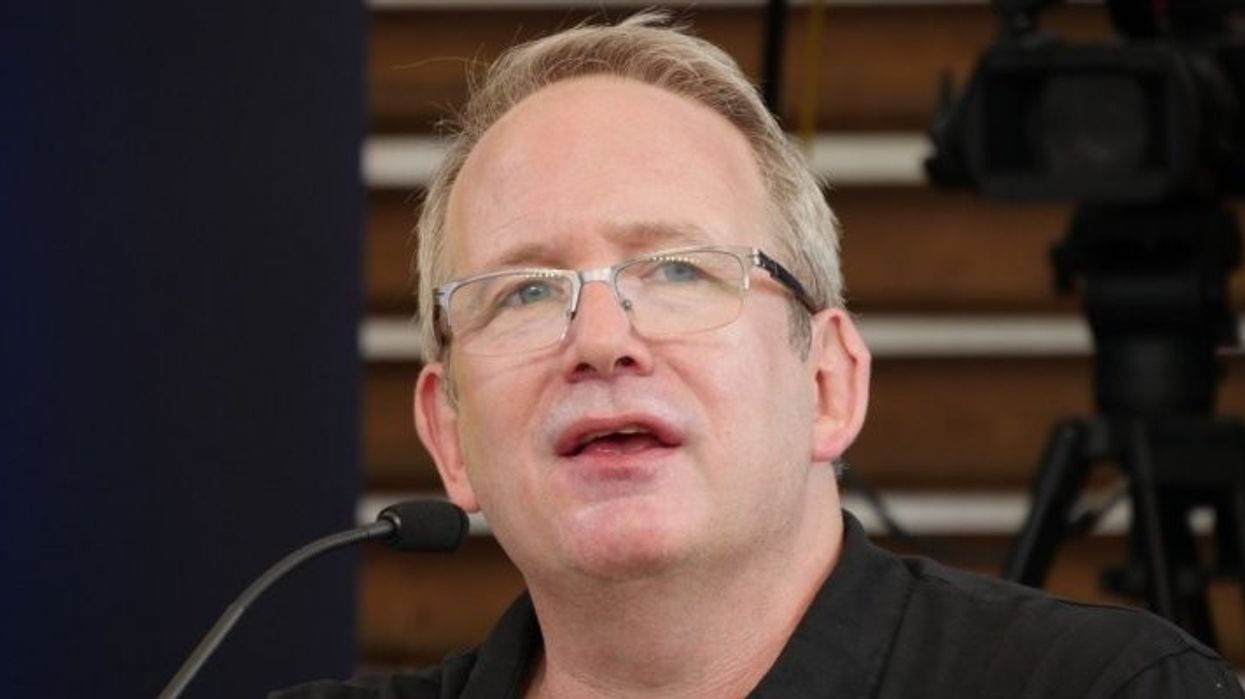3 Tips From Ted Hope on Getting Past Hollywood's Gatekeepers
The prolific producer made a stop in Locarno, Switzerland to provide an update on the current state of independent filmmaking.

Currently the Head of Motion Picture Production for Amazon Studios, Ted Hope has been an integral part of the independent film infrastructure for decades. Having produced films by directors as diverse as Ang Lee, Nicole Holofcener, James Gunn, Todd Solondz, and Tamara Jenkins, Hope has proven an authoritative voice who identifies how the system works before advocating for the most effective way to shake it up. He's quite literally written the book on it.
Feted with the Raimondo Rezzonico award at the 2018 Locarno Film Festival in Switzerland last week, Hope took the time to speak with festival attendees about the current state of the industry and how a formula for success isn't always as cut-and-dried or rinse-and-repeat as you may think. For example, who could have predicted the awards success of last year's top indie films Get Out or Ladybird? What were previous cinematic examples that would have indicated Jordan Peele and Greta Gerwig's 2017 accolades?
Hope noted that there aren't always previous case studies that can predict the success of future projects, and below are a few further takeaways we gathered from his conversation at Locarno.
1. "America is very much a market-driven film system"
Admitting to his international audience that his home country isn't the most generous when it comes to funding for the arts, Hope gathered that as a result, films were being made, first and foremost, to be sold and bought. Forget the original, well-meaning artistic inspirations for making a project; filmmakers today are often churning out commodified products rather than telling new stories.
This shouldn't be the norm, however, and there's no accounting for the belief that film-as-cold-product will sustain itself. "You start to see that we're living in rapidly changing times," Hope revealed, "and those methods that we've used so often don't so readily apply...You have to take into account different things to account for movies of tremendous success."
2. "The film industry is not filled with people who feel as strongly as you do about great cinema"
While this may prove to be an enlightened bummer, it's most likely to be expected given the recent awful scandals and lawsuits that have become public in the wake of the accusations leveled against Harvey Weinstein. You're saying that a number of seasoned film executives are only involved in the industry for the fame and the power that comes with it? While this may not be breaking news, Hope was tremendously honest (and optimistic) about how you can succeed despite these bad apples.
"They're willing to use anything they can to lie, cheat and steal. How are you going to survive?" Hope asked, "and I think you want to ask yourself precisely that, and [how will you] prosper? You want to make sure that you feel better about what you're doing 15 or 30 years later down the line then you do today."
"Most people think you want to get your script to someone like me and that's probably the worst thing to do."
3. Your junior-level peers will be the ones who can contribute to your success (and vice versa)
If you're unsure of how to get your screenplay to the head of Paramount or Warner Bros., that's most likely because you can't. You won't get it directly to the higher-ups and strategizing to do so is not only fool's gold, but unbeneficial to your future success as a writer. Who is it then that will read your script and, if it's a positive reading experience, work hard to greenlight it into production? Your junior-level peers (who may not yet have the title of "President of" or "Chief of" on their business card) are the ones you should be working with as your success will be mutually shared with them. You're both collaborating for the same goal.
"Most people think you want to get your script to someone like me," Hope reflected, "and that's probably the worst thing to do. You actually want to get a script to somebody who's career can be built on them championing your work. As people starting out, you actually want to meet people who are executives who are also starting out, and you want to build a relationship with them where they know what your work is. Along the line, they can help advance your work as you help advance their career within that entity."
What do you think of Hope's advice? Can things be changed for the better (and more efficient)? Let us know in the comments below.
For more information on the Locarno Film Festival, click here.











